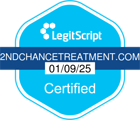
Addiction
What Is Addiction?
Addiction has plagued humans for centuries because it is part of our innate desire to attain enjoyment. Addiction is the inability to choose whether to consume a substance, even when it could be considered dangerous to do so. Generally attributed to the formation of substance abuse habits, addiction can take many forms that don’t rely on substances. Of course, the most harmful addictions are those that involve the use of mind-altering substances such as drugs or alcohol.
Our brains are equipped with powerful reward pathways. Addiction will occur when a reward pathway stimulated in an unnatural or intense way; a way our system may not be equipped to handle. Ordinarily, the reward pathways are there to help us establish healthy behaviors, like obtaining healthy food or positive social interactions. These reward pathways give us natural doses of dopamine when we do things that we consider good for us and others around. Opioid-based drugs, like cocaine, can engage reward pathways in a powerful way; releasing dopamine artificially and making separation from the substance difficult or nearly impossible without support from family or a trusted addiction specialist. Addiction is powerful.
Where Does Addiction Come From?
Although addiction can be life-altering, most people will deal with addiction in small ways, that can lead to more complicated problems in the future. In laboratory conditions, mice will only use cocaine when they are deprived of meaningful contact with other mice. We, humans, are similar in that addiction is most likely to take hold when we are stripped of basic needs such as shelter or social interaction. Many times treatment processes such as behavioral therapy aim to heal these parts of the addiction that can take a mental grasp on patients, forcing them to continue their drug addiction habits.
How Do You Beat Addiction?
Addiction is strongest in those who do not have positive and supportive groups of people to rely upon for support. The best addiction treatment programs include group support in a number of different ways. Support groups form bonds and share stories that would be difficult to share with those outside an addiction treatment facility. Furthermore, reestablishing healthy relationships with friends and family, as well as severing unhealthy relationships is an important part of any long-term recovery plan.
Those suffering from addiction must learn to avoid trigger scenarios, and be ready to call on their support networks when necessary. Triggers can include locations where the addiction sufferer has used in the past or encounters with people they used drugs or alcohol with. Recovery means getting to know ourselves well enough to foresee the potential for events that might trigger a relapse and rebuilding the parts of our lives that are not satisfactory.
Our Addiction Treatment Process
Here at Second Chance Treatment, we employ a multi-layered approach science and psychology of treating addiction. We use an evidence-based system that integrates a range of the best and most modern methods of alcohol and opioid addiction treatments. Our process starts with behavioral therapy session that help mentally ease the patient away from the addiction. Next, we create maintenance medication strategies using the best suboxone treatment methods to physically ween the user from their drug addiction.
We understand that treatment and therapies alone are not enough to complete the recovery process. That’s why we provide robust support for the recovering addiction sufferer. These include counseling and referrals to additional programs like local 12 step groups and churches. Our outpatient treatment model uses only evidence-based interventions for optimal retention rates with statistically robust treatment results. Our goal is to help you or your loved one achieve lasting recovery and full integration back into a normal, full, and fulfilling life doing the things that are best for you, and the things that make for a truly meaningful and satisfying life.
Finding Treatment for Addiction at 2nd Chance Treatment Center
Dealing with addiction can be a struggle, especially without the help from outside sources like family or a support group. 2nd Chance Treatment Center provides long lasting and fulfilling care to patients in need of a friend through drug addiction. Often times drug addiction can lead to intense withdrawal symptoms over time. Using medication and therapy, these symptoms can be mitigated.
You Might Also Enjoy...


How to Tell the Difference Between Anxiety and a Panic Attack

Debunking Common Myths About TMS

How SPRAVATO® Differs from Other Antidepressants

How TMS Can Rewire Your Brain



